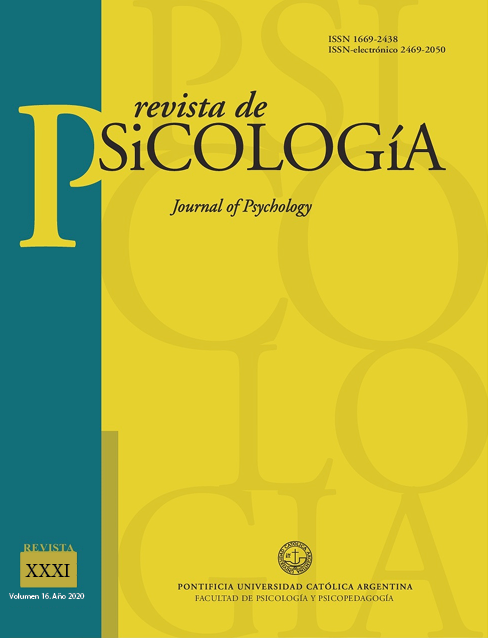Understanding of Consciousness as object of study and practice in psychology and education: Contributions of Freire and Vygotsky
Keywords:
Vygotsky, Freire, consciousness, psychology, educationAbstract
The dialogicity between the creative work of L.S. Vygotsky and Paulo Freire's has been a topic of interest to me for more than two decades. That dialogicity is particularly notable with regard to the issue of consciousness. However, the literature examining this subject, its background and its implications for psychology and education is scarce. This article is an attempt to help remedy that situation. It aims to analyze the place of consciousness in the work of both authors and the implications that their conceptions on the origin and development of consciousness development have for psychology and education.
Downloads
References
Ageyev, V. S. (2003). Vygotsky in the mirror of cultural interpretations. In. A. Kozulin, B. Guindis, V. S. Ageyev y S. Miller (Eds.), Vygotsky’s educational theory in cultural context (pp. 432-449). Cambridge: Cambridge University Press.
Bruner, J. S. (1996). The culture of education. Cambridge, MA: Harvard University Press.
Dafermos, M. (2016). Critical reflection on the reception of Vygotsky’s theory in the international academic community. Cultural-Historical Psychology, 12(3), 27-43.
Dafermos, M. (2018). Rethinking cultural-historical theory. Singapore: Springer.
Elkonin, D. (1984/1997). Epílogo. En L. S. Vygotski: Obras Escogidas, Tomo IV. (pp. 387-412). Madrid. Aprendizaje Visor.
Esteban-Guitart, M. (2016). Funds of identity: Connecting meaningful learning experiences in and out schools. Cambridge: Cambridge University Press.
Esteban-Guitart, M. & Moll, L. (2014a). Funds of identity: a new concept based on funds of knowledge approach. Culture and Psychology, 20(1), 31-48.
Esteban-Guitart, M. and Moll, L. (2014b). Lived experiences, funds of identity and education. Culture and Psychology. Culture and Psychology, 20(1), 70-81.
Freire, P. (1971). La educación como práctica de la libertad. Motenvideo: Tierra Nueva.
Freire, P. (1972). Pedagogía del oprimido. Buenos Aires: Editorial Siglo XXI.
Freire, P. (1991). La importancia del acto de leer y el proceso de libración. México: Editorial Siglo XXI.
Freire, P. & Macedo, D. (1997). Literacy: Reading the word and the world. New York: Taylor & Francis.
González-Monteagudo, J. (2014). Criticism and meaning of the criticism in Paulo Freire. (Versión en inglés de texto publicado originalmente en francés en Pratiques du Formation/Analyses, 43, 49-65). https://www.researchgate.net/publication/264424158_CRITICISM_AND_MEANING_OF_THE_CRITICISM_IN_PAULO_FREIRE_ENGLISH_VERSION
González Rey, F. L. (2011). El pensamiento de Vygotski: Contradicciones, desdoblamientos y desarrollos. México: Editorial Trillas.
Kincheloe, J. L. (2008). Critical pedagogy (2nd. ed.). New York: Peter Lang.
Kozulin, A. (2016). Forward: How to reconstruct deconstructions. In A. Yasnitsky & R. Van der Veer (Eds.), Revisionist revolution in Vygotskian studies (xii-xix). New York: Routledge.
Luria, A. R. (1976). Cognitive development: Its historical and cultural foundations. Cambridge, MA: Harvard University Press.
Luria, A. R. (1982). Language and cognition. New York: John Wiley and Sons.
Moll, L. (Ed.) (1990). Vygotsky and education: Instructional implications and applications of sociohistorical psychology (pp. 31-58). Cambridge: Cambridge University Press.
Petrovsky, A. N. & Yaroshevski (1987). A concise psychological dictionary. Moscow: Progress Press.
Rodríguez Arocho, W. C. (2010). Psicología de la liberación y pedagogía crítica: Un examen de sus aportes y retos. Pedagogía, 43(1), 13-34.
Rodríguez Arocho, W. C. (2013). El lugar de la afectividad en la psicología de Vygotski: Reflexividad histórica y reivindicación. Propósitos y Representaciones, 1(2), 105-129
Rodríguez Arocho, W. C. (2015). Reflexividad histórica, problematización e indagación dialógicas como herramientas para repensar el concepto vygotskiano de zona de desarrollo próximo. Revista Puertorriqueña de Psicología, 26(1): 10-24. Recuperado de http://www.redalyc.org/pdf/2332/233245620002.pdf
Rodríguez Arocho, W. C. (2018). Tecnologías de la información y la comunicación: Nuevas configuraciones mentales y sus implicaciones para la educación. Revista de Psicología, 27(1), 1-12. Recuperado de https://revistapsicologia.uchile.cl/index.php/RDP/article/view/50751
Rodríguez Arocho, W.C. (2019). La alfabetización desde una perspectiva crítica: Los aportes de Vygotski, Freire y Martín Baró. Actualidades Investigativas en Educación, 19 (1), 1-26. Recuperado de https://revistas.ucr.ac.cr/index.php/aie/article/view/35569
Vygotski, L.S. (1925/1991). La conciencia como problema en la psicología del comportamiento. En L. S. Vygotski Obras Escogidas, Tomo I (pp. 39-60). Madrid: Aprendizaje Visor.
Vygotski, L.S. (1926/1991). Los métodos de investigación reflexológicos y psicológicos. En L. S. Vygotski Obras Escogidas, Tomo. I (pp. 3-22). Madrid: Aprendizaje Visor.
Vygotski, L.S. (1931/1995). Historia del desarrollo de las funciones psíquicas superiores. En L. S. Vygotski Obras Escogidas, Tomo III (pp. 11-340). Madrid: Aprendizaje Visor.
Vygotski, L.S. (1934/1993). Pensamiento y lenguaje. En Lev S. Vygotski: Obras Escogidas, Tomo II, pp. 9-348). Madrid. Aprendizaje Visor.
Vygotsky, L.S. and Luria, A. (1930/1994). Tool and symbol y child development. In R. Van de Veer & J. Valsiner (Eds,), The Vygotsky reader (pp. 99-174). Cambridge, MA: Blackwell.
Villacañas de Castro, L.S. (2016). Critical pedagogy and Marx, Vygotsky and Freire: Phenomenal forms and educational action research. New York: Palgrave McMillan Yasnitsky, A. (2018). Vygotsky: An intellectual biography. New York: Routledge.
Wells, G. (1999). Dialogic inquiry: Toward a sociocultural practice and theory of education. Cambridge: Cambridge University Press.
Yasnitsky, A. (Ed.) (2019). Questioning Vygotsky’s legacy. New York: Routledge.
Yasnitsky, A., Van der Veer, R. (Eds.) (2016). Revisionist revolution in Vygotskian studies. New York: Routledge.
Yasnitsky, A., Van der Veer, R. & Ferrari, M. (Eds.) (2014). Cambridge handbook of cultural historical psychology. New York: Cambridge University Pressi
Zavershneva, E. (2010a). The Vygotsky family archive: New findings. Notebooks, notes and scientific journal of L.S. Vygotsky (1912-1934). Journal of Russian and East European Psychology, 48(1), 34-60.
Zavershneva, E. (2010b). The way to freedom. Journal of Russian and East European Psychology, 48(1), 61-90.
Zavershneva, E. (2014). The problem of consciousness in Vygotsky’s cultural-historical psychology. In A. Yasnitsky, R. Van der Veer & M. Ferrari, (Eds.), Cambridge handbook of cultural historical psychology (pp. 63-97). New York: Cambridge University Press.
Zavershneva, E. & Van der Veer, R. (Eds.) (2018). Vygotsky’s notebooks: A selection. Singapore: Springer.
Zavershneva, E. & Osipov, M. E. (2012). Comparative analysis of the manuscript “The (historical) meaning of psychological crisis” and its version published in Vol.1, the collected works of L.S. Vygotsky (1982) edited by M.G. Yaroshevsy. Dumba Psychological Journal, 3(1), 41-72.
Downloads
Published
How to Cite
Issue
Section
License















